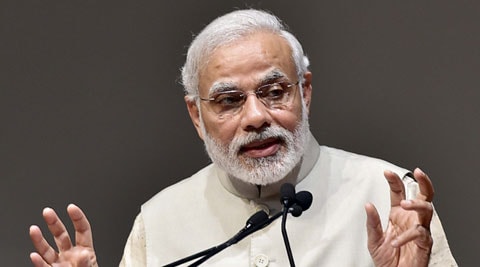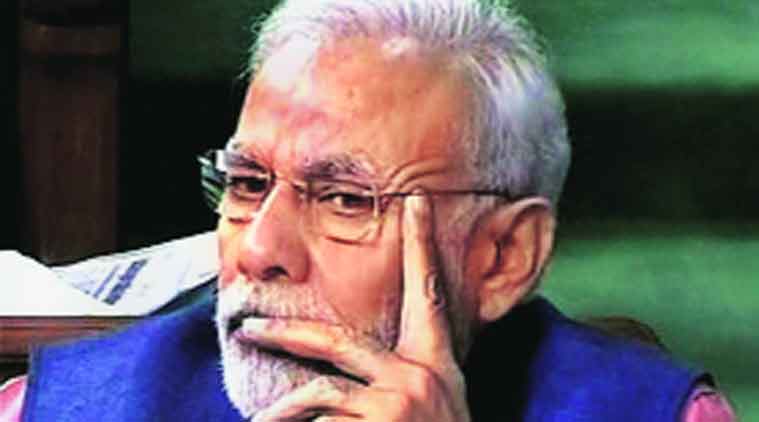Opinion Fifth Column: Continuity is not change
Do we need continuity in our appalling infrastructure standards?
 Modi, Uri revenge, uri attack, modi uri revenge, modi uri response, pakistan, pakistan terrorism, sushma swaraj speech pakistan, india uri attack, uri attack india, uri attack pakistan
Modi, Uri revenge, uri attack, modi uri revenge, modi uri response, pakistan, pakistan terrorism, sushma swaraj speech pakistan, india uri attack, uri attack india, uri attack pakistan  Why is Mr Modi not speaking more plainly about the urgent need for reforms?
Why is Mr Modi not speaking more plainly about the urgent need for reforms?
Whenever the Prime Minister hears the word ‘continuity’, he should make sure that heads roll. If Indian voters wanted continuity, they would have voted for Sonia and Son. It is because they were fed up with bad governance, horrendous public services and economic policies that dried up the job market that they voted them out. But somehow this message has escaped the mighty mandarins who control the Government of India, so someone or the other speaks against big change every other day. Why does the Prime Minister not remind them that he was given a mandate for change?
Last week it was the turn of the Chief Economic Advisor to tell an audience in Washington that it was ‘unreasonable’ to expect ‘big bang reforms’ in a democracy like India. To frighten prospective investors even more, he added that the government was moving ‘slowly and steadily’ instead. If this very damaging statement from Arvind Subramanian was the exception, it would not be worth mentioning. But sadly it is not. Far too many officials in charge of major economic ministries share this view and because the Prime Minister remains silent, he is now being charged with being ‘pro-corporate’. He made a spirited defence of the changes he has made to the land law but puzzlingly did not mention that the real reason for these changes is that unless investment picks up, there will be no hope of creating the 12 million new jobs India needs to create every year.
His ‘Make in India’ mission was started because big factories create big employment, but if it is going to take a minimum of three years to buy, leave alone acquire, land, there will be no factories. Why is Mr Modi not speaking more plainly about the urgent need for reforms? Why does he not tell the Indian people that big reforms have become necessary because the old ‘pro-poor’ model failed?
It failed because in the name of the poor, Congress-style socialism has given officials immense powers to interfere in the business of business. The licence raj may have been diluted but the inspector raj allows officials to decide even things like the salaries of executives in private companies. And ‘pro-poor’ labour laws allow officials to interfere so much in matters of hiring and firing that instead of jobs being created, they have been prevented from being created. Do we need these things to continue?
Do we need continuity in our appalling infrastructure standards? We must be the only country in the world where major highways are washed away every rainy season. And if you ask high officials why this happens, they will usually tell you that they have to concentrate on building assets that help ‘the poor’. Do good roads harm the poor? Anyone who travels in India will report that wherever roads have come up, they have brought prosperity and jobs. But this is something the mighty mandarins of the Government of India care nothing about because in their version of socialism, there was one standard for us natives and one for themselves.
They could not care less if public services in healthcare and education were dismal because they do not use them anyway. Until private hospitals in Delhi and Mumbai became as good as the best, they had permission to travel abroad when they got sick. They still do. What annoys me most is that while us natives are forced to send our children to colleges that admit them only if they have marks that hover close to 100 per cent, the children of our bureaucrats nearly all manage to go to foreign universities. I do not know a single bureaucrat whose children have not gone abroad for higher studies. Do we want continuity in this?
From long years of lurking about the corridors of power in Lutyens Delhi, I have learned that the most powerful people in this seat of India’s government are unelected officials. These ‘burra sahibs’ are so wily that they manage to scare the daylights out of their political bosses. They do this by walking them through labyrinths of procedure so tied up in red tape that they are the only people who know where the exit is.
My fear is that these mighty mandarins have managed to convince Modi that change can only come slowly, if at all, because things can only be done in a certain way. So such things as ‘big bang reforms’ must be taken off the agenda and replaced with gentler ideas like continuity.
Of course, continuity will ensure that there is never change, but that is exactly how they like it. This is because if there is one group of people who have benefited hugely from Indian-style socialism, it is bureaucrats. Why should they give up their privileges just because there is a Prime Minister who promised parivartan?
Follow Tavleen Singh on Twitter @ tavleen_singh


